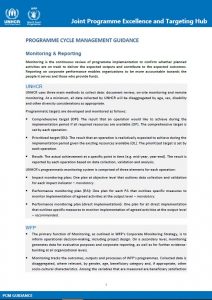Programme and Policy
The Joint Hub provides support to country operations to strengthen refugee self-reliance while ensuring basic food and other needs are met. This involves evidence-based strategy development to support the progressive transition of refugees towards sustainable solutions and greater self-reliance, facilitating the development of joint action plans to support closer programmatic collaboration. By promoting collaboration, strategic alignment, evidence-based decision making, and a strong commitment to people-centered approaches, the Joint Hub supports both immediate impact and long-term recovery through innovative, data-driven solutions for displaced populations.
The work of the Joint Hub is guided by the joint initiatives and strategies signed by UNCHR and WFP.
WFP-UNHCR GLOBAL INITIATIVES
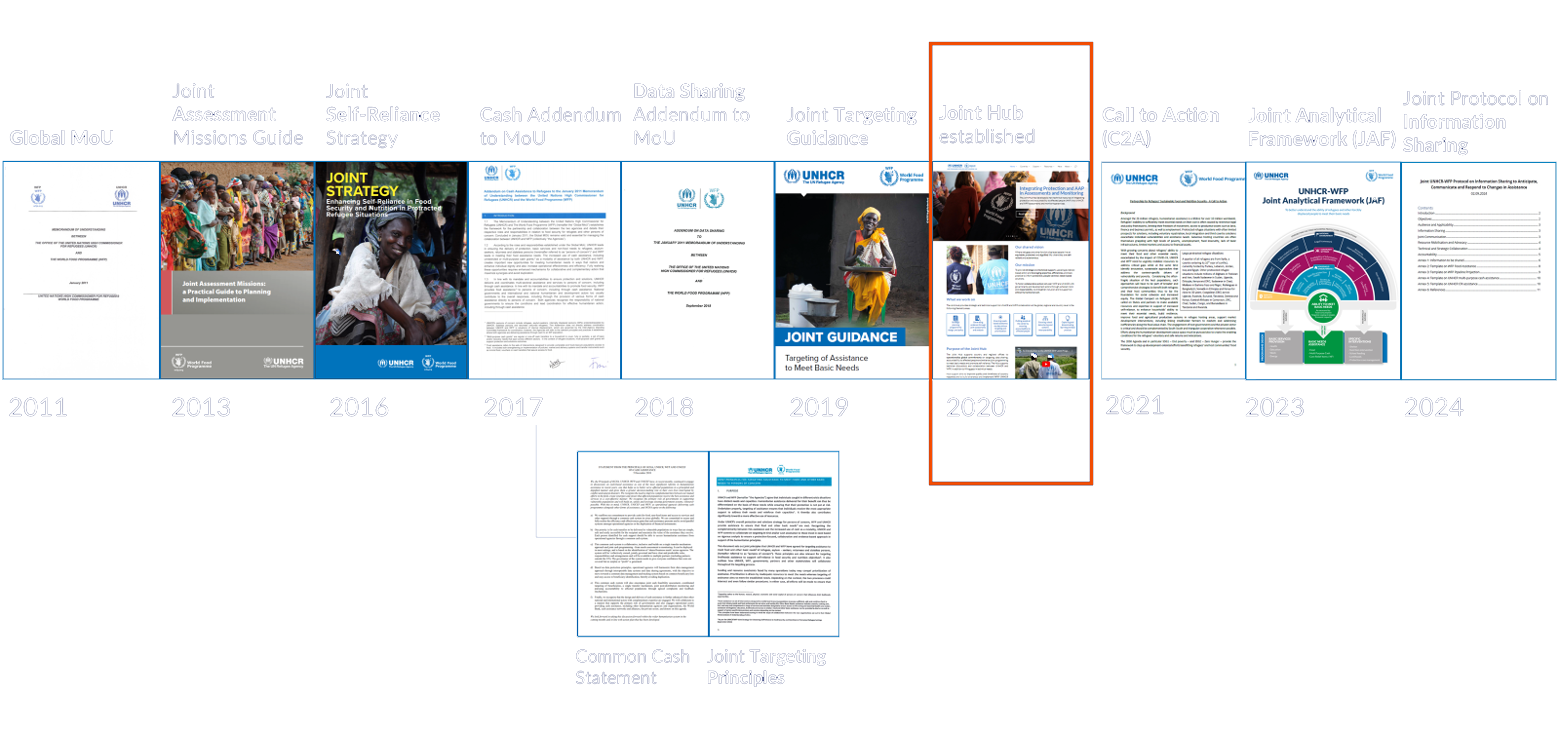
Guided by the Joint UNHCR-WFP Strategy for Enhancing Self-Reliance in Food Security and Nutrition in Protracted Refugee Situations, the Joint Hub provides support to country operations to strengthen refugee self-reliance while ensuring basic food and other needs are met. This involves evidence-based strategy development to support the progressive transition of refugees towards sustainable solutions and greater self-reliance, facilitating the development of joint action plans to support closer programmatic collaboration.
UNHCR-WFP Joint Strategy
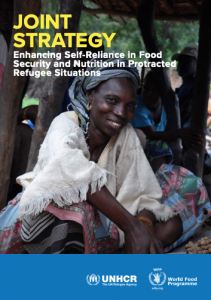
UNHCR-WFP Corporate Approaches to Livelihoods and Self-Reliance Programming
Developed by the UNHCR-WFP Joint Programme Excellence and Targeting Hub, the below four short resource documents provide an overview of UNHCR and WFP approaches to livelihoods and self-reliance programming in refugee and displacement settings. Part one covers the key policy frameworks of both agencies, while parts two and three cover UNHCR and WFP corporate approaches, with part four listing additional UNHCR and WFP programmatic approaches.
Policy Frameworks
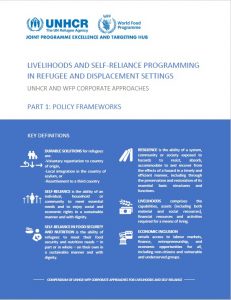
UNHCR Programming
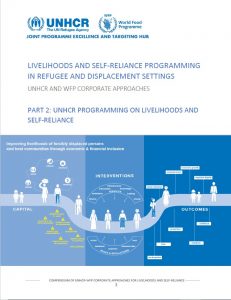
WFP Programming
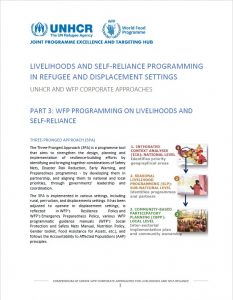
Additional approaches
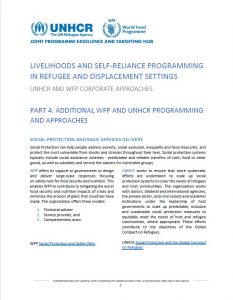
UNHCR-WFP Project Cycle Management Technical Briefs
Developed by the UNHCR-WFP Joint Programme Excellence and Targeting Hub, these short resource documents provide an overview of key elements at each stage of the project cycle management process for UNHCR and WFP. The briefs aim to build an understanding and awareness of these processes between the two agencies to inform joint work at global, regional and country office levels. They are divided into six parts, shown below.
Summary
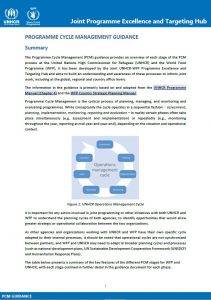
Assessment
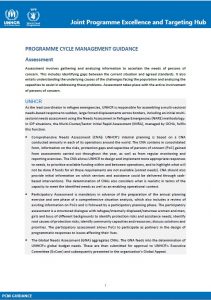
Planning
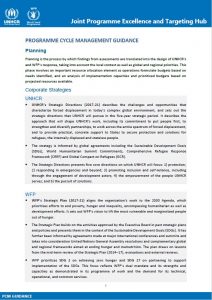
Implementation
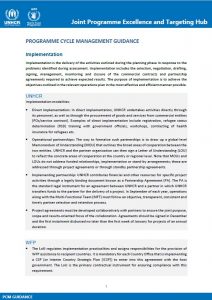
Evaluation
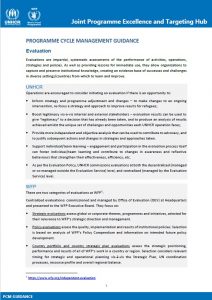
Monitoring and Reporting
